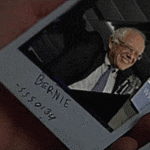|
I'm starting to doubt that the reason people distrust media is because of media literacy. I think the reason for distrust media is because of strong propaganda forces that hardwire people into feeling a certain way. To put to much onus on the individual who is influenced by crap might be blaming the egg for the chicken.
|
|
|
|

|
| # ? Apr 27, 2024 22:27 |
|
Rexicon1 posted:I'm starting to doubt that the reason people distrust media is because of media literacy. I think the reason for distrust media is because of strong propaganda forces that hardwire people into feeling a certain way. To put to much onus on the individual who is influenced by crap might be blaming the egg for the chicken. Owlofcreamcheese posted:Like if I wanted to claim 18% of pork shoulder contains hook worm cysts. I could make a dozen very professional news websites, write extremely long and detailed articles that mention that, quote the USDA saying it's true quote:with dozens of websites I also hosted saying the USDA confirmed it quote:said that and all link it to a bunch of scientific journals I also wrote and submitted to poor quality publishing farm fake scientific journals that most people wouldn't know were fake. quote:At that point I could add that fact to wikipedia and a dozen other sites would use that number because they checked wikipedia and wikipedia seemed to have some good sources. quote:And maybe someday CNN would just say in some throw away cooking safety throw away segment, then I got cites from CNN saying it's true. quote:And none of this would ever trick someone who actually knew for even a second, but it's a huge web of apparently good journalism eventually built on the bones of bad journalism because the original was just lies.
|
|
|
|
Like, I am not a super experienced or talented reporter. I do not have awards. I do not report full time. But the basics of journalism just aren't that complex, and we absolutely can help people better understand them. This isn't a hopeless situation. I'm not offering a magical panacea here, I'm just saying an effort can be made to improve the situation, and one way to do that is to make it harder for people to make money on bad reporting, by reducing the demand for bad reporting.
|
|
|
|
There is something darkly humorous about arguing that biased media sources can follow the strictest media standards, and demonstrating how this can be done by... literally not investigating a blatant fraud? Owlofcreamcheese, no. Just no.
|
|
|
|
FactsAreUseless posted:
My fake news sites say they contacted the USDA and they said it was true.
|
|
|
|
Owlofcreamcheese posted:My fake news sites say they contacted the USDA and they said it was true.
|
|
|
|
You're like a little kid shouting "I HAVE A LASER SHIELD."
|
|
|
|
FactsAreUseless posted:That's not how it works, I don't know what you aren't getting about this. It's not how what works? It's exactly how anti vaccine and anti global warming stuff works. It's false information so if someone digs enough they can find that the lies are lies, but they are lies that are apparently well supported as other liars say them, including quotes from experts that don't exist and quotes from people that seem like they would be experts but are not.
|
|
|
|
Owlofcreamcheese posted:It's not how what works? It's exactly how anti vaccine and anti global warming stuff works. It's false information so if someone digs enough they can find that the lies are lies, but they are lies that are apparently well supported as other liars say them, including quotes from experts that don't exist and quotes from people that seem like they would be experts but are not.
|
|
|
|
At best, you could argue that fake news is a strategic disinformation campaign. That very obviously doesn't make it an example of good journalistic standards, though, so basically you sound like a crazy person.
|
|
|
|
"People should be taught to better recognize good and bad journalism." "That's impossible, because what if bad journalism?"
|
|
|
|
While it's theoretically possible to put effort into fake journalism (in the pure or nearly-pure sense), few people actually bother, because that's not where the money is. See, e.g., https://www.washingtonpost.com/nati...m=.62a594815660 and http://nymag.com/selectall/2016/11/can-facebook-solve-its-macedonian-fake-news-problem.html for discussion of the economics of this sort of thing; the goal is generally maximum clicks for minimum effort. The incentives change where the motivation is more specific, but not by much. It's possible that there are people with financial ties the the chicken industry who would specifically try to bring down the pork industry with sophisticated lies about the USDA and hook worm cysts, but if they had enough impact to bring down pork sales, they'd get noticed enough to get into legal trouble. Note that it is possible (and common) to spread sophisticated misinformation for the benefit of specific commercial interests, but people don't do it by fabricating USDA quotes; it's safer to fund think tanks that produce misleading but not completely fabricated statistics.
|
|
|
|
FactsAreUseless posted:Your position is that media literacy is either pointless or impossible because people can just fake good journalism. I'm telling you that isn't possible. As your hypothetical demonstrates, you don't have enough media experience to understand that. The official position of organizations like the Associated Press is that vaccines are safe and effective and global warming is real. They didn't start at these conclusions and work backwards. The basics of research and investigation that make for good reporting led them to it. That's my point. There is no situation of "good journalism disguising false facts" because good journalism will, very quickly, turn up that those facts are false. Teaching people to recognize the difference between good and bad journalism allows them to better evaluate the news and recognize when a news organization - or fake news organization - is failing at it. I think what he's trying to say is that an established organization can potentially discredit themselves in certain circles by overstepping their bounds while a fake news site can come up with an endless amount of false sources that the average person can't navigate while being presented in a fashion that matches 'legitimate' sources (see: infowars' extremely high production value) So it's less of media literacy = bad and more like it's a deep dark grey area that most people can't handle. We all understand that the Cato Institute is a bullshit source of information but when it's 'findings' are being presented generations away from the source, that's more difficult.
|
|
|
|
Call Me Charlie posted:I think what he's trying to say is that an established organization can potentially discredit themselves in certain circles by overstepping their bounds while a fake news site can come up with an endless amount of false sources that the average person can't navigate while being presented in a fashion that matches 'legitimate' sources (see: infowars' extremely high production value)
|
|
|
|
Can't we just go back to calling "fake news" propaganda? There is literally no difference.
|
|
|
|
UV_Catastrophe posted:I was thinking about buying a subscription to the Washington Post to try and support real journalism, but lol at that fake "Russian propaganda" story that they published. Every media organization fucks up occasionally. If you wait for the newspaper that has never been wrong, you'll never subscribe to anything. The Facebook fake news scandal is about sources that are *always* wrong or dishonest, not those that are occasionally hoodwinked. Just reading a "reliable source" doesn't mean you don't have to engage your critical thinking skills.
|
|
|
|
It's also about more than just the sources and facts presented. Again, it's not just about the end result, or even just "is the story true." It's about how it's reported, because true things can be reported in ways that are misleading. Let's take a look at a random Fox News story.quote:Hampshire College returns US flag to full staff; president denies playing politics quote:Hampshire College in Massachusetts raised the American flag back to full staff Friday after outraged veterans protested the school's decision to stop flying all flags across campus. quote:The college in Amherst had lowered the U.S. flag to half-staff after Election Day. The flag was found burned on Veterans Day, and the school chose to stop flying it – and any other flags – a week later. quote:"We understand that many who hold the flag as a powerful symbol of national ideals and their highest aspirations for the country -- including members of our own community -- felt hurt by our decisions, and that we deeply regret," the college's president, Jonathan Lash, stated Friday. He added, "We did not lower the flag to make a political statement. ... We acted solely to facilitate much-needed dialogue on our campus about how to dismantle the bigotry that is prevalent in our society." quote:The school's choice to stop flying the flag triggered widespread condemnation and a protest by veterans groups and their supporters outside campus. Last weekend, dozens of vets and other activists held American flags and chanted, "U.S.A.," in a rally that organizers called a "peaceful demonstration of freedom." quote:Mayor Domenic Sarno of nearby Springfield and others at the rally said the school's decision disrespected veterans and current military members. quote:In video that aired Wednesday on "The O'Reilly Factor," Fox News' Jesse Watters confronted Lash, who refused to comment on the controversy at that time. quote:"Hampshire staff and faculty have led facilitated discussions, I have held multiple focus group sessions, and all of our students, faculty, and staff have been invited to contribute their opinions, questions, and perspectives about the U.S. flag. This is what free speech looks like," Lash said Friday. But every criticism in here isn't of the factual content of the story, which may or may not be accurate. It's of the manner in which it was presented. There are best practices, in terms of reporting and ethics and writing and so forth, that have been discussed and agreed upon based on objective standards of good reporting. You can look for them in any story, just like you would look at any other profession. It's just that journalists aren't licensed like interior designers or lawyers. There's no bar exam. There's no board of journalistic ethics that will take away your reporter's license if you breach them. That's entirely up to the audience, and that's why the audience needs to know these things.
|
|
|
|
Owlofcreamcheese posted:My fake news sites say they contacted the USDA and they said it was true. Sure. And anyone who actually cares to verify that would go hunting for the original USDA press release, posted publicly on the USDA website, that announced the news. They'd follow your source links through all your fake news sites looking for the actual public USDA statement your claim would be based on.
|
|
|
|
Nothing is true; everything is permitted. In Australia, the truism 'the Narrative' informs the way many of us get our news, fake, bad journalism or otherwise. We've got the worst combination of centralized media ownership and swinging door lobbies. The same faces around different directorial boards, etc. It was coined for the then seemingly extraordinary control of the 24hr cycle by the Howard reign from the late 90's to the late 00's, and only started breaking down because neoliberal policy's results had no political outlet strong enough to disrupt it. Now it's in full disruption, and the money pit that journalism has become makes the Narrative more dangerous because there is no journalistic will to contest it, as there was once upon a time. I'd even claim we were post-fact before post-fact was a thing. Howard was all about post-fact. His successors are merely refining the technique, and they're not terribly good at it. FAU, I found your proposition of teaching media literacy very appealing, but would never happen here, the right wing are on to such plans and fight their culture wars more successfully on the curriculum than the US Midwest - which is the very place that needs that literacy most and will never get it anyway. So, great idea, shame about the execution. Unless civilization itself recognizes the danger, I fail to see why any ideologue would permit such a limitation. Astroturfing remains a clear and present danger, and in combination with 24hr fake news, done well, could be devastating. The problem of combatting that is who wants to read an in-depth investigation by a journalist of other journalists or think tank ideologues? It might stroke the right nerve of a liberal like myself but the mass of people just don't care about that stuff. That's the biggest problem, most people don't care about the fakeness of fake news anyway.
|
|
|
|
I'm an optimist on these things. By the time mass radio transmission became a thing, people were already treating newspapers with a grain of salt, but mostly their monopoly on reporting and the inherent competition in the industry kept them in check. But Radio gave people the first opportunity to hear what their leaders sound like, and the impressive feat was accompanied by taking for granted what they said. Hitler's own words were broadcast to Germans unfiltered and because the medium was relatively new, they listened. So did every other country when the radio was first created. But after controversies like the War of the Worlds broadcast, people were forced to take a far more skeptical look at what they heard on radio. Then television came along, and the same thing happened. The new medium was overly trusted, largely because it was new and because the culture hadn't yet adapted to its strengths and weaknesses. Then the internet, then social media. Over time, cultures will learn how to deal with the mistruths that go around on all of these mediums because, well, we won't have a choice. The problem is not that we can't adapt, but that untold damage will be done in the meantime while we do so.
|
|
|
|
This is a post I wrote for the Auspol thread, I'd like to write more but I'm phone posting. The story which features this "Jewish Council" was featured on mainstream news, including conservative commentators using it as an example of "bad protestors"Recoome posted:This is the tl;dr from what I have right now, sorry it's not a lot. The greatest irony is that it's likely completely manufactured in order to make a point whilst still making Jews out to be a problem (A Jewish anti fascist group organized a demonstration), and this involves two controversial ultranationalist senators who try to paint themselves as a victim. Scary poo poo
|
|
|
|
I don't see many people talking about tabloids so I thought I'd ask if these had any sort of significance to the current shitstorm I work at a cash register and two times a week the national enquirer and globe will poo poo out whatever absurd stuff they want, national enquirer being the worse of the two This weeks headline is that the 3 clintons have been indicted and were taking russian bribe blood money Others off the top of my head: it was world war 3 if Hilary was elected, bills gay dug fueled parties, hiliary has 6 months to live, obama in a turban, an awful Photoshop of a zombie like hiliary, hiliary cannot walk on her own anymore, worse than Watergate scandl These reach millions of people and a lot probably don't care to research to see if it's true, or don't know that these tabloids go to extremes and how they get away with it Late e: there has been absolutely nothing ever been any bad "reports" on Trump, and I think I read that he's friends with the national enquirer(by far the worst one), but I'm not sure stringball fucked around with this message at 09:41 on Dec 3, 2016 |
|
|
|
Our tabloids are slightly more truthful than that, they specialize in the eye-catching headline and picture and then the weasel words on page 5. The Murdoch model basically.
|
|
|
|
Recoome posted:This is a post I wrote for the Auspol thread, I'd like to write more but I'm phone posting. The story which features this "Jewish Council" was featured on mainstream news, including conservative commentators using it as an example of "bad protestors" This a step beyond the usual fake organisations that lovely garbage people use to establish authority like the Media Research Center or American College of Pediatricians.
|
|
|
|
In Sydney we have a man, his wife and a dog who apparently are the directors of the Sydney Institute. He wages a one-man war against the public broadcaster and refuses to disclose who funds his "institute". These things are more of a continuum than distinct states. For instance we have the wonderfully-named Institute of Public Affairs who are the premier right wing think-tank. Their proclamations are usually news somewhere, their members often get onto the public broadcaster for balance. Lately they're the tool for developing Liberal party policy because the party is incapable of any ideas of its own. Seriously, they took an IPA list of 100 wants and tried to implement most of them. They're still trying to. One of their stars went on to become the most useless head of the Human Rights Commission and recently got parachuted into a safe Liberal seat and promptly attacked the HRC for being useless. That's how it's done here. So it's more than just fake news for fake news sake. It's about stepping stones to power.
|
|
|
|
Would teaching people media literacy actually fix the problems we see with mainstream journalism though? I'm genuinely curious, because people seem to have decided that good journalism isn't profitable, in a world driven increasingly by Jobs And Growth. Breaking the back of 'fake news' and their funding model doesn't necessarily mean people will take their money to institutions that practice good journalism more often than not, right? At that point what do you do? If your job as a journalist rests on your employer deciding you make them enough money to justify your pay, how do you advocate for things that directly affect their bottom line? How do you hold the powerful to account when they stop talking to you because you think human rights aren't just an inconvenience to ignore? How do you shed light on government wrongdoing when breaking the story lands you in jail? These aren't just hypothetical questions, incidentally, at least not here in Australia. Is it really as simple as teaching people to recognise when they're being fed a narrative rather than being told the truth, or are there other things that need to change? If so, what? How? And most importantly, how can an idiot goon on the internet do something to push things towards helpful change? I mean, I'm not saying there's not room to just vent about the state of media these days on this comedy internet forum, but are there things people could be doing instead?
|
|
|
|
ewe2 posted:FAU, I found your proposition of teaching media literacy very appealing, but would never happen here, the right wing are on to such plans and fight their culture wars more successfully on the curriculum than the US Midwest - which is the very place that needs that literacy most and will never get it anyway. So, great idea, shame about the execution. Unless civilization itself recognizes the danger, I fail to see why any ideologue would permit such a limitation. Makrond posted:Would teaching people media literacy actually fix the problems we see with mainstream journalism though? I'm genuinely curious, because people seem to have decided that good journalism isn't profitable, in a world driven increasingly by Jobs And Growth. Breaking the back of 'fake news' and their funding model doesn't necessarily mean people will take their money to institutions that practice good journalism more often than not, right? At that point what do you do? If your job as a journalist rests on your employer deciding you make them enough money to justify your pay, how do you advocate for things that directly affect their bottom line? How do you hold the powerful to account when they stop talking to you because you think human rights aren't just an inconvenience to ignore? How do you shed light on government wrongdoing when breaking the story lands you in jail? 2. If it becomes an embarrassment to a company that their journalists can't report on their parent company or a major advertiser, that becomes less common. But you're right, it can be very difficult for reporters to avoid the pressure to report favorably on things their organization is connected to. It will remain important to consume news from many sources. Ideally, journalists would all act ethically and their audience would hold them accountable to those standards, but that's an "in a perfect world" argument. 3. If free press protections collapse and the government starts jailing journalists, this is all a moot point because regardless of media literacy, journalism is hosed in that country. You would need a strong public movement in favor of a free press, with consistent public outcry and protest when journalists are jailed. So... good luck with that one, Australia.
|
|
|
|
Main Paineframe posted:Sure. And anyone who actually cares to verify that would go hunting for the original USDA press release, posted publicly on the USDA website, that announced the news. They'd follow your source links through all your fake news sites looking for the actual public USDA statement your claim would be based on. Remember that story about the male contraceptive and how the volunteers chickened out because of a few light symptoms? Only if you actually read the loving paper, you found that the conception wasn't working, the side effects resulted in some remaining sterile and an outside safety group from the WHO stepped in to stop the study? I can't tell you how many times someone would say to me, "Well I've got several sources (several sources citing Buzzfeed) saying what feels right to me and you have this weird link that I've never heard of (the loving paper) so I think you're full of poo poo". Then this starts getting conflated with the other, more well documented issues about women's health and it all goes to poo poo. I know OoCC implied that there was some central Bond villain who does this, but it's really more of an organic process of folks passing sit around, sometimes in good faith, sometimes in ignorance and half the time to make a buck or press an agenda.
|
|
|
|
BarbarianElephant posted:Every media organization fucks up occasionally. If you wait for the newspaper that has never been wrong, you'll never subscribe to anything. The Facebook fake news scandal is about sources that are *always* wrong or dishonest, not those that are occasionally hoodwinked. This a good point, and it's absolutely true. Makrond posted:Would teaching people media literacy actually fix the problems we see with mainstream journalism though? I'm genuinely curious, because people seem to have decided that good journalism isn't profitable, in a world driven increasingly by Jobs And Growth. Breaking the back of 'fake news' and their funding model doesn't necessarily mean people will take their money to institutions that practice good journalism more often than not, right? At that point what do you do? If your job as a journalist rests on your employer deciding you make them enough money to justify your pay, how do you advocate for things that directly affect their bottom line? How do you hold the powerful to account when they stop talking to you because you think human rights aren't just an inconvenience to ignore? How do you shed light on government wrongdoing when breaking the story lands you in jail? The economic side of this whole complicated issue is also what interests me. A lot of the good, hard-hitting investigative journalism and reporting has been traditionally done by print newspaper organizations, which are now well into financial decline due to the advent of the internet. Unfortunately, it doesn't appear that internet-based news outlets have picked up much of the slack left by the void of traditional on-the-ground reporting and investigating. Most outlets seem to be content with leeching off the journalistic efforts of the remaining print newsrooms still left standing, which has exacerbated the phenomenon where articles are citing sources that are secondhand or thirdhand or worse. The fact of the matter is that we need well-funded and independent media organizations that can take on powerful interests and dig deep with investigative reporting. Unfortunately, we are coming up against the aspect of human nature that makes people tend to favor news that panders to their individual biases and preconceptions rather than favoring news that comes closest to the realistic truth. In practice, this means that people will throw their attention (and money) toward fake news groups that satisfy their worldview over legitimate news organizations. I think maybe we need to start thinking about supporting sane and credible news outlets financially as a purely political gesture, e.g. subscribing or donating to legitimate news outlets in the same way that we donate to and support political candidates. Personally, I don't actually spend any money on any kind of news media, because I can read everything I want for free on the internet. I'm pretty sure that drat near everyone here knows that you can bypass internet paywalls on most news articles through incredibly simple means. I think the rise of fake news and the erosion of credible journalism can, in part, be traced back to this ongoing "free lunch" that we've been enjoying for the past decade or so. It's catching up to us. UV_Catastrophe fucked around with this message at 20:20 on Dec 3, 2016 |
|
|
|
Sometimes I do think the US government exercises a lot more control over the media then we'd want to think about. I mean just look at this: https://www.youtube.com/watch?v=XEVlyP4_11M&t=755s She was not toeing the government line and conveniently is cut off by pure, fresh-squeezed prolefeed. It's really spooky, like something you see in a movie taking the show-don't-tell approach to signifying "this is a dystopia". I wonder how this would have gone if they had the NSA director saying the Patriot Act is all hunky-dory. It wasn't even edited to seem that way, that's how it was aired. RT (ironically) had the same clip and for all their faults, called them out on this bullshit.
|
|
|
|
|
That's just a conspiracy thinking. Really, the government is watching and makes the news break to some pop culture story? You honestly believe that's what happened?
|
|
|
|
skooma512 posted:She was not toeing the government line and conveniently is cut off by pure, fresh-squeezed prolefeed. It's really spooky, like something you see in a movie taking the show-don't-tell approach to signifying "this is a dystopia". I wonder how this would have gone if they had the NSA director saying the Patriot Act is all hunky-dory. No, that's just the lazy media making an equivalency between political news they can't be bothered explaining with OH GOD JUSTIN BIEBER GOT ARRESTED. Ironically, if you watch the whole episode of LWT you'd get more of an education about the NSA and Snowden than the mainstream media ever have or are likely to bother to give you. Like Oliver says, if the only thing that gets people thinking about actual privacy from international surveillance is dick-pics then that's the baseline that is needed to engage them.
|
|
|
|
UV_Catastrophe posted:I was thinking about buying a subscription to the Washington Post to try and support real journalism, but lol at that fake "Russian propaganda" story that they published. The Washington Post is fake news.
|
|
|
|
Killer-of-Lawyers posted:That's just a conspiracy thinking. Really, the government is watching and makes the news break to some pop culture story? You honestly believe that's what happened? That literally happens for movie productions that want to take advantage of US military resources. https://www.shorescripts.com/pentagon/ I haven't seen the clip of skooma512 is talking about from John Oliver or RT's call out so I'm not trying to compare the two. But it's not crazy conspiracy thinking to think that certain places self-censor themselves. Even the wikileaks podesta emails showed they had a group of friendly reporters they could reach out to that would set in motion the narrative they wanted. https://theintercept.com/2016/10/09/exclusive-new-email-leak-reveals-clinton-campaigns-cozy-press-relationship/ Call Me Charlie fucked around with this message at 05:11 on Dec 4, 2016 |
|
|
|
tekz posted:The Washington Post is fake news. Explain how the Washington Post is fake news.
|
|
|
|
What I'm getting from all of this is we need a "War of the Worlds" type of event every so often.
|
|
|
|
tekz posted:The Washington Post is fake news.
|
|
|
|
DACK FAYDEN posted:No, that's the Washington Times. Pretty sure the Times isn't fake news either, just conservative.
|
|
|
|
Call Me Charlie posted:'Fake News' is a manufactured scapegoat. I agree. The "Fake News" meme was mostly conjured up by the very publications that were caught colluding with the Clinton campaign through wikileaks after Hillary lost the election. The assertion that "fake news" is an exclusively right-wing phenomenon is simply idiotic. For instance: CNN, NBC, ABC, CBS, The New York Times, The Guardian, The Washington Post, and even supposedly prestigious "economists" like Paul Krugman were—and still are—insisting that Donald Trump was working for the Kremlin in one way or another. I have even seen people like Bill Maher and John Oliver give credence to this neo-McCarthyist horseshit. The mainstream media should do itself a favor by dropping this puerile talking point. This is the digital information age. Outlets like InfoWars and Alternet are not going anywhere; so they should probably just get used to it.
|
|
|
|

|
| # ? Apr 27, 2024 22:27 |
|
A Deacon posted:For instance: CNN, NBC, ABC, CBS, The New York Times, The Guardian, The Washington Post, and even supposedly prestigious "economists" like Paul Krugman were—and still are—insisting that Donald Trump was working for the Kremlin in one way or another. I have even seen people like Bill Maher and John Oliver give credence to this neo-McCarthyist horseshit. Is the clear alignment of the trump campaign with putin somehow no longer a real thing? Also how is it remotely "McCarthyist"?
|
|
|









 going towards lovely journalism, but I also don't want the true crackpot news organizations to push out the more legitimate ones that are at least attempting to bring out the truth.
going towards lovely journalism, but I also don't want the true crackpot news organizations to push out the more legitimate ones that are at least attempting to bring out the truth.













